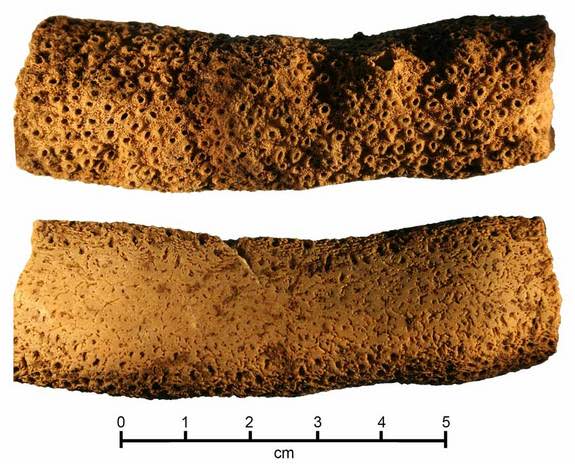First Polynesians Arrived in Tonga 2,800 Years Ago
The first Polynesian settlers sailed to Tonga between 2,830 and 2,846 years ago, according to new research.
The findings, published Nov. 7 in the journal PLoS One, relied on ultraprecise dating of coral tools found at Tonga's first settlement.
"The technique provides us with unbelievable precision in dating quite ancient materials," said David Burley, a co-author of the study and an archaeologist at Simon Fraser University in Vancouver. "This stuff is almost 3,000 years old, and the date range is within 16 years."
The new techniques could be used to trace the migration of Polynesia's prehistoric seafarers as they colonized the archipelagos of the Pacific Ocean, he said.
The Lapita people, the ancestors of modern-day Pacific Islanders, first sailed from coastal New Guinea roughly 5,000 years ago, reaching the Solomon Islands around 3,100 years ago and gradually expanding farther east toward what is now the archipelago Tonga, Burley told LiveScience.
Across a string of Pacific islands, the Lapita left traces of their culture: primitive nail files broken from staghorn coral reefs. The ancient inhabitants of Oceania likely used these coral files to smooth the surfaces of wooden objects or shell bracelets, Burley said.
Archaeologists determine when the Lapita migrated to an island by estimating the age of the earliest coral files there. Historically, they dated the coral files using radioactive carbon isotopes (atoms of the same element with different weights). But precise numbers were elusive, because carbon dating can be off by a few hundred years. [The 9 Craziest Ocean Voyages]
To see if they could do better, Burley and his team analyzed 16 coral files found buried in the sand under the site of Polynesia's oldest known settlement, a small village called Nukuleka on the Tongan island of Tongatapu.
But instead of using radioactive carbon, the team used radioactive uranium and developed a method to date the ancient coral fragments with incredible precision.
The researchers pinpointed the date of first landfall at Tonga to within eight years of 826 B.C.
Because the Lapita scattered such coral files at many sites, the new technique could be used to retrace the steps of the ancient seafarers throughout Oceania with astonishing accuracy, Burley said.
"We can look at this progression across the Pacific in ways we couldn't before," he said.
Follow LiveScience on Twitter @livescience. We're also on Facebook & Google+.
Copyright 2012 LiveScience, a TechMediaNetwork company. All rights reserved. This material may not be published, broadcast, rewritten or redistributed.


